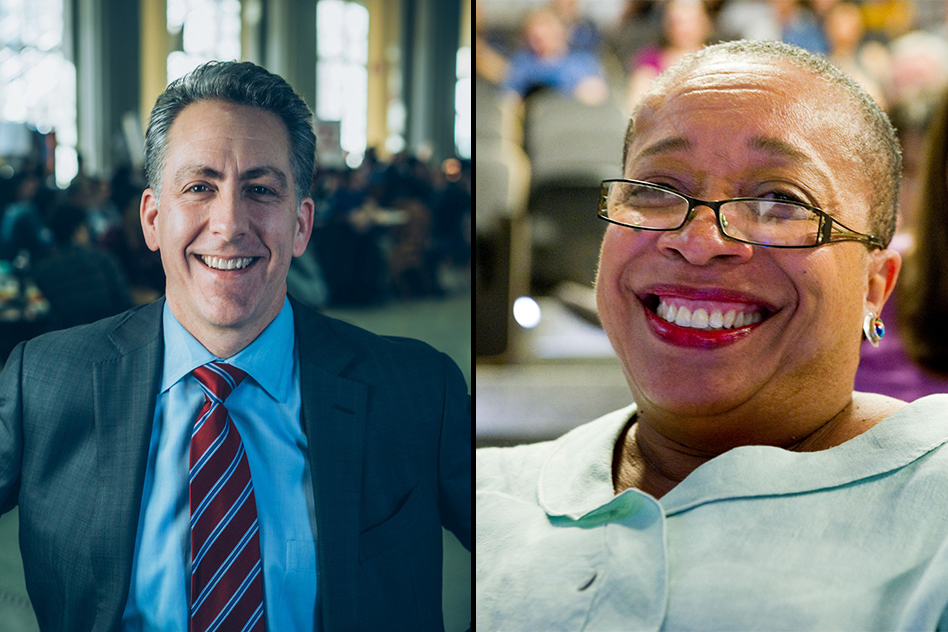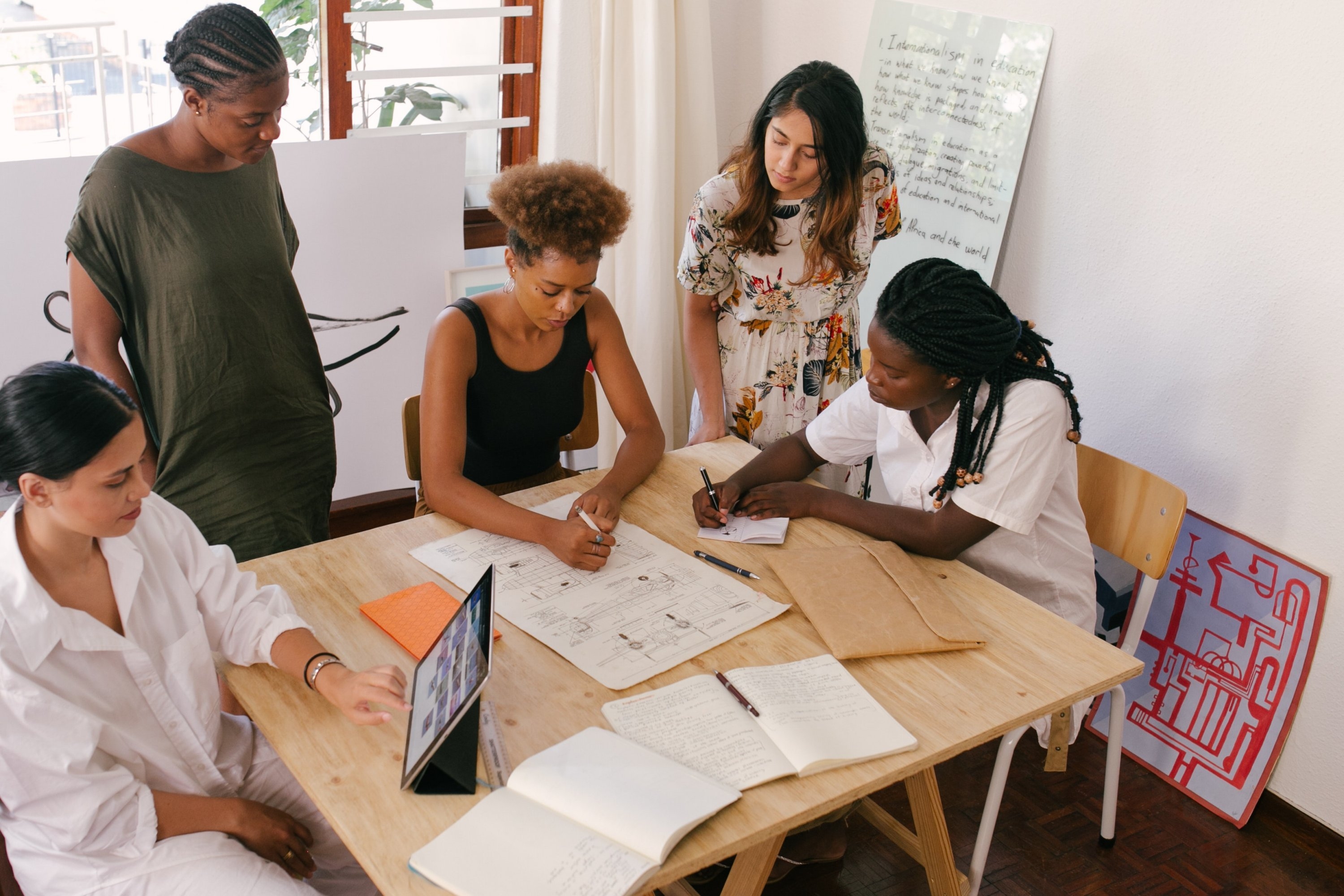3 Questions: Ian Waitz and Blanche Staton on MIT’s continuing commitment to graduate students
Despite the pandemic, the Office of the Vice Chancellor has continued to make progress on efforts to enhance the MIT graduate student experience.

One of the cornerstones of the Office of the Vice Chancellor’s (OVC) mission is improving the graduate student experience at MIT. Since it was established in 2017, OVC has continued to move forward with programs and initiatives focused on alleviating financial insecurity, supporting graduate families, enhancing advising, augmenting professional development, and other key issues — even amid the disruption of the past year. Here, Ian A. Waitz, vice chancellor for undergraduate and graduate education, and Blanche Staton, senior associate dean for graduate education in the Office of Graduate Education, describe some of the Institute’s latest efforts to support graduate students.
Q: How has MIT responded to the needs of graduate students, given the challenges of the pandemic?
A: The pandemic has been tough on everyone. So much of what makes MIT special is the vibrancy of the campus. Fortunately, our phased reopening has been very successful, but there are still necessary restrictions and many of our students are living elsewhere. We all long for the day when we can once again see folks walking and biking across campus, bump into a friend or colleague, or strike up an impromptu conversation at the food trucks.
Although we have continued to make steady progress on a number of our priorities, given the urgency of the pandemic we’ve focused more attention on graduate students’ immediate needs: financial security; addressing the unique challenges facing our international student population; and easing the transition to online learning.
Short and long-term financial distress among graduate students, including financial needs due to the pandemic, have been a top priority. These efforts built on our work in 2019 with the Graduate Student Council (GSC) to better understand and address acute financial insecurity faced by some doctoral students. This work led to a commitment from each school to implement policies and practices that reduce financial insecurity among specific populations of doctoral students, namely those on nine-month appointments or with nonresident status.
More recently, we’ve partnered with the schools to try to meet the needs of graduate students who lost summer funding, either through work opportunities or other sources. We have also created three new sources of financial support: short-term emergency funding, doctoral student long-term financial hardship funding, and a need-blind pilot program, the MIT Grant for Graduate Students with Children. The short-term emergency fund situated in OGE has disbursed over $298,000 to help graduate students with the loss of 2020 summer funding opportunities, housing, moving costs, and other basic living expenses, like food and utilities, from the onset of the pandemic. Our process to identify doctoral students in financial hardship has helped 14 students with financial assistance, and the grant for graduate student parents disbursed 72 awards of between $2,000 and $4,000 last fall and is continuing this spring.
We have also responded to the unique challenges facing our international students. Last summer and fall, MIT reviewed and approved over 800 requests for students to pursue their appointments from outside the U.S. Many of these requests were for students who remained in the U.S at the start of the pandemic, but who wished to return to their home countries to pursue their studies and appointments. MIT also took a leading role in a successful lawsuit challenging a federal government policy that would have impacted many international students’ ability to study in the U.S. if their classes were fully online.
For spring 2021, we had to modify our approach to remote international appointments due to the increasing complexities in U.S. and foreign regulations, the fluid pandemic conditions, and other factors. We have worked very closely with students, departments, and the International Students Office to try to find solutions on a case-by-case basis. Fortunately, we have managed to resolve almost every appointment, enabling students who need to remain remote from the U.S. to do so. Moving forward, we do not anticipate having the same flexibility, but we will continue to monitor the issue closely.
Last, but certainly not least, we ran a Student Success Coaching Program last spring to help students adjust to the unfamiliar, virtual environment we suddenly found ourselves in. The program matched faculty and staff with students, providing much-needed support and resources for the spring term as we transitioned to our new normal. Fourteen graduate programs opted-in to the initiative and over 1,100 graduate students participated.
Q: Part of the rationale for forming your office in 2017 was to better leverage resources and staff to serve the growing graduate student population. What other progress has been made?
A: Given the decentralized nature of our graduate educational programs, we are always looking for new ways to collaborate across departments, offices, and programs. And we are working to address any gaps that we find. So we’re really pleased about two new staff positions that we believe will go a long way toward better supporting graduate students.
In September, the GradSupport team in the Office of Graduate Education (OGE) hired Gaurav Jashnani, a new assistant dean. Gaurav is a mental health counselor with prior experience in roles at Columbia and the City University of New York, where he focused on student development and well-being.
We also recognize we need to strengthen our support for graduate students with families. So in addition to the previously mentioned MIT Grant for Graduate Students with Children, we are very excited to welcome our new program administrator for graduate student families, Adj Marshall. This position was created in response to a recommendation of the Graduate Family Support Working Group. Adj brings wonderful expertise from her recent work at Tufts University and other educational institutions and nonprofits. She will collaborate closely with Naomi Carton, associate dean of graduate student support in the Residential Education office, to support graduate families both on and off campus.
Another area we are working on is professional development. Based on national data and our own surveys, we know there is a growing demand for this at MIT. Two ideas that are gaining momentum are an Institute-wide professional development requirement for graduate students, and expanding curricular experiential opportunities.
In addition, this spring Career Advising & Professional Development (CAPD) and OGE will pilot Graduate Mentoring Circles for graduate students of color. Current students will connect with alumni for culturally relevant guidance in academic and industry careers. The program focuses on leadership, upward mobility strategies, and relationship-building. Students interested in participating can email gradmentoringcircles@mit.edu.
These are a few examples, but the bottom line is that many staff across MIT are actively working on graduate professional development. Also, CAPD is in the process of hiring an associate director of graduate student professional development (a new position), so we look forward to making tangible progress in this area.
Q: What are some other big ideas under consideration to improve the MIT graduate student experience?
A: One idea that we are excited to roll out this spring is a graduate student online training module on mental health and well-being. It was designed in partnership with the Division of Student Life (DSL), OGE, and MIT Medical and developed by Everfi, which provides the platform for our other online modules like sexual assault prevention. The training addresses essential skills and information to help graduate students manage common emotional stressors and challenges. Although many schools provide such training to undergraduate students, we believe this is the only effort in the U.S. to provide it to graduate students.
Graduate student advising continues to be a huge priority; studies clearly show the correlation between mentoring and graduate students’ personal satisfaction and academic progress. Consequently, we are exploring many different avenues to improve advising.
Last fall, MIT’s Academic Council approved a revision to the tenure process, making excellence in mentoring and advising an explicit criterion in the tenure review process. On the heels of that, we are working to launch an ad hoc committee for a strategic plan on graduate mentoring and advising to create a framework on how to implement best practices more widely.
During spring 2020, the School of Engineering (SOE) ran a successful training pilot for junior faculty on evidence-based mentoring. SOE partnered with OVC, OGE, the Teaching and Learning Laboratory, and MindHandHeart to develop the pilot, which is designed to help research advisors improve their skills for engaging in productive, culturally responsive, research mentoring relationships. The majority of junior faculty found the training helpful, and many reported they planned to implement new tools, like Individual Development Plans, in their research groups.
The pilot is a great example of a program that we believe can be scaled up, as part of a broader Institute-wide initiative to focus on graduate mentoring and advising. Another example is a Graduate Advising Playbook that the same team developed — a framework of best practices in advising and mentoring. The Dean’s Group, graduate officers and administrators, the Committee on Graduate Programs, and many others are actively engaged in conversations about the best way to frame this initiative and move it forward. The GSC has been gathering feedback, as well, through a graduate research advising survey. So, while we have much to do, we believe this could really be a game-changer at MIT.





































